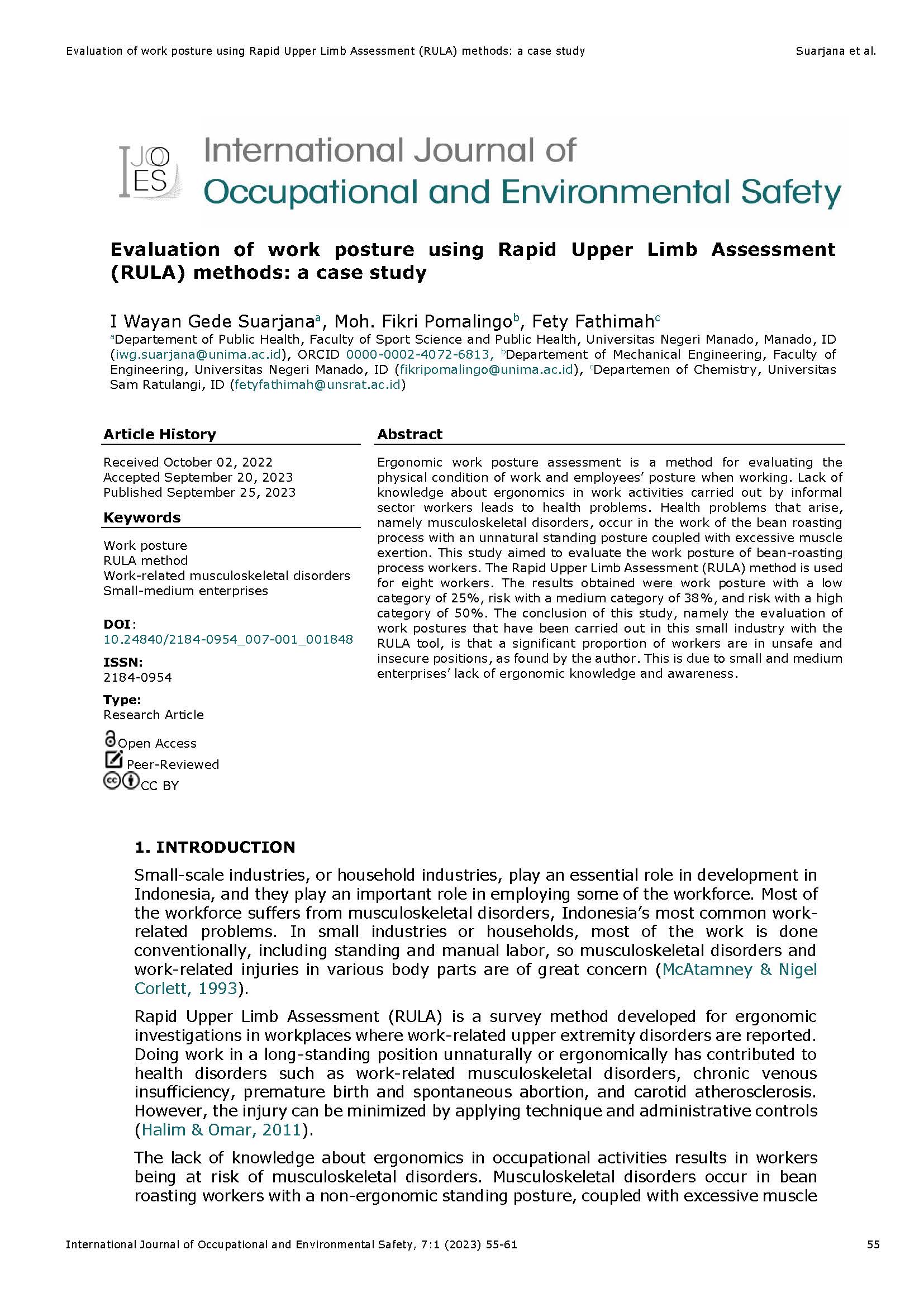Evaluation of work posture using Rapid Upper Limb Assessment (RULA) methods: a case study
Main Article Content
Abstract
Ergonomic work posture assessment is a method for evaluating the physical condition of work and employees’ posture when working. Lack of knowledge about ergonomics in work activities carried out by informal sector workers leads to health problems. Health problems that arise, namely musculoskeletal disorders, occur in the work of the bean roasting process with an unnatural standing posture coupled with excessive muscle exertion. This study aimed to evaluate the work posture of bean-roasting process workers. The Rapid Upper Limb Assessment (RULA) method is used for eight workers. The results obtained were work posture with a low category of 25%, risk with a medium category of 38%, and risk with a high category of 50%. The conclusion of this study, namely the evaluation of work postures that have been carried out in this small industry with the RULA tool, is that a significant proportion of workers are in unsafe and insecure positions, as found by the author. This is due to small and medium enterprises’ lack of ergonomic knowledge and awareness.
Article Details

This work is licensed under a Creative Commons Attribution 4.0 International License.

